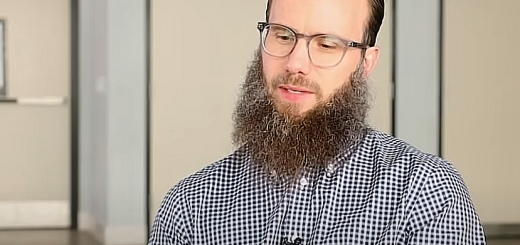Rights of patients and people with special needs
ritten by Dr. Ragheb Elsergany
Introduction
 Islam and the Islamic civilization have a special approach towards the care for patients and people with special needs. This approach starts with reducing some legal obligations placed on them, as stated in the words of Almighty Allah (be He Exalted): {It is no fault in the blind nor in one born lame, nor in one afflicted with illness} [Al-Nur: 61, Al-Fath: 17]. The approach ends with bringing hope for them and preserving their physical and psychological rights.
Islam and the Islamic civilization have a special approach towards the care for patients and people with special needs. This approach starts with reducing some legal obligations placed on them, as stated in the words of Almighty Allah (be He Exalted): {It is no fault in the blind nor in one born lame, nor in one afflicted with illness} [Al-Nur: 61, Al-Fath: 17]. The approach ends with bringing hope for them and preserving their physical and psychological rights.
The Prophet’s treatment of patients
The Prophet (peace be upon him) used to hasten to visit a patient if he heard about his illness, although the Prophet was busy and had many concerns. His visit was not stilted or forced, but he felt duty towards patients; why not, as he (peace be upon him) made the visit of a patient one of the latter’s rights?! He (peace be upon him) said: “The rights of a Muslim on Muslims are five… to visit the sick.” [1]
The Prophet (peace be upon him) was a teacher and an example. He used to alleviate the patient’s crisis and illness, expressing his sympathy, care and love inartificially, thus making the patient feel happy. In this regard, Abdullah ibn Umar narrated: Sa’d ibn Ubadah became sick and the Prophet (peace be upon him) along with Abd-al-Rahman ibn Awf, Sa’d ibn Abu-Waqqas and Abdullah ibn Mas’ud (May Allah be pleased with them) visited him to enquire about his health. When he came to him, he found him surrounded by his household and he asked, “Has he died?” They said, “No, O Allah’s Messenger.” The Prophet wept and when the people saw the weeping of Allah’s Messenger (peace be upon him) they all wept. He said, “Will you listen? Allah does not punish for shedding tears, nor for the grief of the heart but he punishes or bestows His Mercy because of this.” He pointed to his tongue. [2]
The Prophet (peace be upon him) used also to pray for patients and bring good news for them that they would be rewarded for the illness that afflicted them, thus relieving them and making them satisfied. Umm Al-Ala[3] narrated: The Allah’s Messenger (peace be upon him) visited me while I was sick. He said: “Be glad, Umm Al-Ala for Allah removes the sins of a Muslim for his illness as fire removes the dross of gold and silver.” [4]
The Prophet (peace be upon him) was keen to relieve the patients and not to make it difficult for them. In this regard, Jabir ibn Abdullah (May Allah be pleased with him) said, “We were on a journey and one of us got injured. Later, he had a wet dream. He asked his companions, ‘Can I perform tayammum (rubbing hands and feet with dust)?’ They said, ‘No, not if you have water.’ He performed ghusl (bathing) and died. When they came to the Messenger of Allah (peace be upon him), they informed him of what had transpired. He said, “They killed him, Allah will kill them. Do you not ask if you do not know? The rescue of the ignorant person is the question. He could have performed tayammum and dropped water on his wound or wrapped it with something and wipe over the wrapping, and wash the rest of his body.” [5]
Moreover, the Prophet (peace be upon him) used to meet the patients’ needs and walk with them until he satisfies their demands. A woman, who had a partial derangement in her mind, came to him one day and said: ‘O Allah’s Messenger, I want something from you.’ He said: “O Mother of so and so, see on which side of the road you would like (to stand and talk) so that I may meet your need.” He stood aside with her on the roadside until she got what she needed. [6]
The Prophet (peace be upon him) also gave the patients and those with special needs the right to medication, as the safety of the body inward and outward is a purpose of Islam. When desert Arabs asked the Prophet (peace be upon him) about medication, he replied: “Make use of medical treatment, for Allah has not made a disease without appointing a remedy for it, with the exception of one disease, namely old age.” [7]
The Prophet (peace be upon him) did not reject treatment by a Muslim woman of a Muslim man. He allowed Rufaydah – a woman from the tribe of Aslam – to medicate Sa’d ibn Mu’az when he was injured in the battle of Al-Khandaq. She (May Allah be pleased with her) used to heal the wounded and put herself in the service of needy Muslims. [8]
 In a practical way, the Prophet (peace be upon him) treated Amr ibn Al-Jamuh (May Allah be pleased with him) favorably. Amr was a man of special needs. He had a lame leg. He had four sons, who used to partake in battles with the Prophet (peace be upon him). On the day of Uhud, Amr expressed his desire to go to the battlefield, but his sons advised him to remain at home. He went to the Prophet (peace be upon him) and told him that his sons wanted to prevent him from taking part in the battle. “Yet, by Allah, I wish to be slain so that I may stroll lamely in the Paradise,” said Amr. The Prophet (peace be upon him) replied, “Allah has not made Jihad (holy fighting) incumbent on you;” and to his sons he said, “What is the problem if you allow him to go? Allah might bless him with martyrdom.” Amr went to the battle with the Prophet (peace be upon him) on the day of Uhud and he was killed in the battle. Then, the Prophet (peace be upon him) said: “By Allah, among you are some people who if swear by Allah, He will fulfill their prayer, among them is Amr ibn Al-Jamuh. I saw him strolling in the Paradise with his lame leg.” [9]
In a practical way, the Prophet (peace be upon him) treated Amr ibn Al-Jamuh (May Allah be pleased with him) favorably. Amr was a man of special needs. He had a lame leg. He had four sons, who used to partake in battles with the Prophet (peace be upon him). On the day of Uhud, Amr expressed his desire to go to the battlefield, but his sons advised him to remain at home. He went to the Prophet (peace be upon him) and told him that his sons wanted to prevent him from taking part in the battle. “Yet, by Allah, I wish to be slain so that I may stroll lamely in the Paradise,” said Amr. The Prophet (peace be upon him) replied, “Allah has not made Jihad (holy fighting) incumbent on you;” and to his sons he said, “What is the problem if you allow him to go? Allah might bless him with martyrdom.” Amr went to the battle with the Prophet (peace be upon him) on the day of Uhud and he was killed in the battle. Then, the Prophet (peace be upon him) said: “By Allah, among you are some people who if swear by Allah, He will fulfill their prayer, among them is Amr ibn Al-Jamuh. I saw him strolling in the Paradise with his lame leg.” [9]
This is the case of patients and people with special needs in Islam and the Islamic civilization.
[1] Narrated by Al-Bukhari on the authority of Abu-Hurayrah, Chapter of Al-Jana’iz (funerals) (1183), and Muslim, chapter of Al-Salam (salutation) (2162).
[3] Um Al-Ala: Embraced Islam and paid allegiance to the Prophet (peace be upon him). Aunt of Hizam ibn Hakim. See: Ibn Al-Athir, Asad Al-Ghabah 7/405, and Ibn Hajar Al-Asqalani: Al-Isabah Al-Tarjamah 8/265 (12176).
[4] Narrated by Abu-Dawud, chapter of Al-Jana’iz (3092). Al-Albani said correct; see: Sahih Al-Jami’ (7851).
[5] Narrated by Abu-Dawud, chapter of Al-Taharah (purification) (336), Ibn Majah (572), Ahmad (3057), Al-Darmi (752), Al-Darqutni (3), and Al-Bayhaqi in Al-Sunan Al-Kubra (1016). Al-Albani said correct; see: Sahih Al-Jami’ (4362).
[6] Narrated by Muslim on the authority of Anas ibn Malik, chapter of Al-Fada’il (2326), Ahmad (14078), Ibn Hibban (4527).
[7] Abu-Dawud, chapter of Al-Tib (medicine) (3855), Al-Tirmizi (2038) and said a good and correct hadith, Ibn Majah (3436), and Ahmad (18477). Shu’ayb Al-Arna’ut said the transmission of the hadith is correct and its men are reliable. Al-Albani said correct; see: Ghayat Al-Maram (292).
[8] Narrated by Al-Bukhari; Al-Adab Al-Mufrad 1/385 (1129), Ibn Hisham: Al-Sirah Al-Nabawiyah 2/239, and Ibn Kathir: Al-Sirah Al-Nabawiyah 3/233. Al-Albani said the transmission of the hadith is correct and all its men are reliable. See: Al-Silsilah Al-Sahihah (1158).
[9] Narrated by Ibn Hibban on the authority of Jabir ibn Abdullah, chapter of the Prophet’s talk about the qualities of his companions (7024). Shu’ayb Al-Arna’ut said its transmission is good. Narrated also by Ibn Sayyid-al-Nas: Uyun Al-Athar 1/423, and Al-Salihi Al-Shami: Subul Al-Huda wa Al-Rashad fi Sirat Khayr Al-Ibad 4/214.
Number of View :2196














